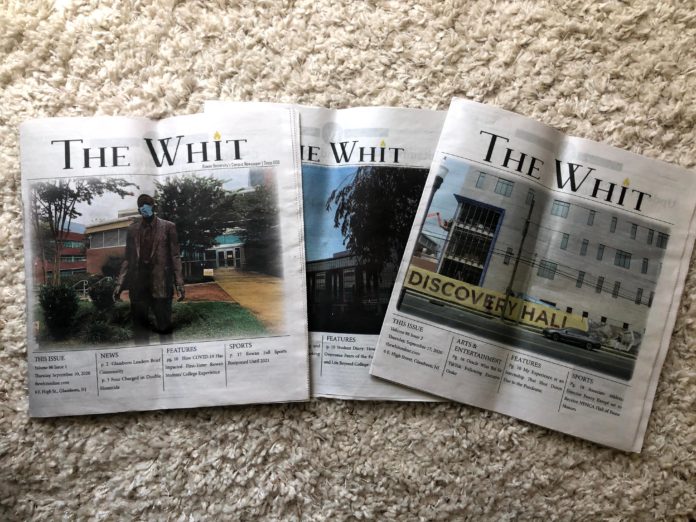
Newspapers, radio news, TV news broadcasts and other forms of professional journalism are very convenient and, for the most part, reliable sources of information. We can rely on them for accurate information that is thoroughly investigated and utilizes sources that we as common citizens wouldn’t have easy access to.
However, that isn’t to say traditional news outlets are always right.
Consider what happened when Kobe Bryant died early this year: news sources were quick to jump on any leads they could get before confirmations were made or Bryant’s family was informed. There was confusion in the media surrounding how many of his children were involved in the accident, and news sites that had reported the inaccuracies in an effort to break the news had to issue corrections to attempt saving face.
As The Whit staff noted in our editorial published after the accident, these news organizations were more concerned with reporting quickly than they were with reporting confirmed information.
Inaccurate reports were quickly noticed by the public and corrected. With less prominent stories, the public might not immediately notice inaccuracies — maybe even not at all. For example, if an article were to talk about the opening of a hedgehog hospital wherein the founder’s name was spelled wrong, it would most likely go unnoticed except by the founder and people who know them. That is, unless the founder was well-known outside of their own social circles.
What we’re trying to emphasize through this obscure hypothetical is that news reporters are not infallible. We are still people, and people make mistakes. ALL people. And even if an article or broadcasting script goes through several rounds of revision, as do our pieces at The Whit, there is still room for error.
As people who take pride in their work and do their due diligence in every step of the reporting process, journalists may try to shy away from this fact. It’s not something we take lightly; any little mistake in our reporting weighs on us, as it is our duty to report the facts of any story with utmost accuracy. Misinforming the public is practically a sin in the mind of any good journalist.
But we can never go our entire career without making even a small mistake. Journalists’ humanness prevents us from being perfect in our reporting — it’s just not feasible. And this is true for every field. There are surgeons who botch the occasional procedure, computer scientists who input a line of code wrong, and I’m sure Kobe Bryant missed a shot or two at some point during his exalted career.
This may sound like a grim outlook for those who look to trusted journalists for their news. As a reminder, most mistakes that are published are eventually corrected, and major mistakes are rare with good reporting.
But, if we’re human and can’t attain perfect reporting, how do we prevent the sin of misinforming of the public?
The answer lies with the public itself. You are responsible for the information you take in. You choose what reporters you listen to, what articles you read, what news channels you watch, and what websites you visit. You can prevent your own misinformation simply by diversifying your news intake. If one of your news sources reports something incorrectly and the five others you look at have the information right, you’re able to discern what the reality is.
Another benefit to diversifying your sources is that you can form your own opinions and come to your own conclusions about things going on in the world today. Say two of your regular news sources are more on the liberal side and three are more conservative. Depending on what each organization views as the most important parts of a story, what they report and how they frame it may differ. From listening to more than one source, you can create opinions with all the information available, not just from the information provided by a potentially biased source.
This applies to everything that informs our own personal outlooks on life. Whether it’s political, religious or anything in between, having a variety of sources can help you decide who you want to vote for, what your values are and what you consider fact.
With the 2020 presidential election swiftly approaching, this diversification of the news and information you obtain is more than important — it’s essential. Each of our votes in this election will show what our values are and in what capacity we want our country and society to function. Without a wide range of news sources, our votes will potentially be misinformed and our true desires for society will not be achieved.
While we at The Whit have and will continue to strive for reporting perfection, that simply will not always be feasible. What readers can do as part of our community is to tell us if we misconstrue something in our reporting, and we will be more than happy to correct our errors and make the truth clear to all Rowan community members.
And, as mentioned above, you shouldn’t take our — or any — articles as gospel. As human beings, we all have our own biases, though as journalists we try to keep our articles free of them (except for in the opinion section). As a result, readers should take the initiative to seek out news sources beyond or in tandem with The Whit to solidify their own personal stances on issues that impact the greater community.
For comments/questions about this story, email editor@thewhitonline.com or tweet @TheWhitOnline.




